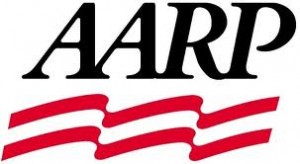 The following excerpt is taken from a letter sent to USTR Michael Froman by AARP, AFL-CIO, AFSCME, the Alliance for a Just Society, Alliance for Retired Americans, Center for Medicare Advocacy, Inc., Center on Budget and Policy Priorities, Consumers Union, Medicare Rights Center, National Committee to Preserve Social Security and Medicare, and the National Senior Citizens Law Center.
The following excerpt is taken from a letter sent to USTR Michael Froman by AARP, AFL-CIO, AFSCME, the Alliance for a Just Society, Alliance for Retired Americans, Center for Medicare Advocacy, Inc., Center on Budget and Policy Priorities, Consumers Union, Medicare Rights Center, National Committee to Preserve Social Security and Medicare, and the National Senior Citizens Law Center.
Most of the letter discusses the medicines pricing provisions outside of the IP chapter. The section dealing with TPP and pharmaceutical patents is excerpted below.
…As we have discussed with your staff, we are also concerned by proposals in the intellectual property chapter that would greatly expand international minimum standards for domestic patent protection beyond that included in the World Trade Organization’s Agreement on Trade-Related Aspects of Intellectual Property Rights (TRIPS). This proposal, as we understand it, would lower the standards of patentability, which could hamper the efforts that TPP parties have made to curtail the problem of “evergreening” drug patents, particularly for products that do not demonstrate a clear, significant clinical advantage or efficacy over the reference product. We are also concerned the proposal would establish new requirements in international law to grant patents on diagnostic, therapeutic, and surgical methods , as well as new forms and uses of known products. These and other provisions could restrict the range of policy options that could be adopted by Congress to address the serious problem of patent “evergreening.”
Our concerns also stem from the fact that expanding patentability criteria would be counter to ongoing efforts to reform U.S. patent standards to address the increase in overly broad patents that contribute to “patent trolling.”
More importantly, such efforts would directly contradict the development and implementation of restrictions on patentability, including the recent U.S. Supreme Court decision (Association for Molecular Pathology v. Myriad Genetics, Inc.) that isolating naturally occurring genes is not patent eligible subject matter.
For all these reasons, we request you withdraw proposed intellectual property chapter language that goes beyond the WTO TRIPS Agreement and would lower patentability criteria or restrict how governments can define patentable subject matter and patentability criteria.
Click here for the full letter (PDF)




